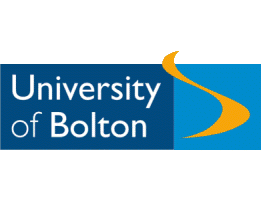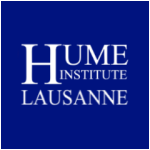

PhD in Sustainable Tourism Development
In 2019, just before the COVID-19 pandemic, Travel and Tourism direct, indirect and induced impact accounted for USD$ 8.9 trillion contribution to the world’s GDP according to the World Travel & Tourism Council WTTC. This represented 10.3% of global GDP. It also represented 330 million jobs; 1 in 10 jobs around the world. Tourism related jobs are mostly held by women and youth and tend to be more flexible in nature.
As the world becomes more Climate conscious, sustainable tourism becomes a necessity and tourism and its’ related supply chains need deeper understanding and review. This is all the more important because just before the crisis, the growth of the tourism economy was in fact outpacing average global growth. Assuming we come out of the pandemic by 2022-23, tourism will rise again and more needs to be done to make it sustainable for the planet, in a way that it can continue to provide jobs and growth to the economy.
New knowledge needs to be produced on how to make the existing tourism value chains more sustainable, planet friendly and how to also educate consumers in that regards. More science needs to be built in this under-studied area to transform certain linkages between transport, tourism, well-being and culture.
Academic theory building is much in demand in sustainable tourism. Those employed in the tourism industry tend to be low-skilled yet the clients are increasingly sophisticated. There is a need to conceptualize better social audits of the labour force in tourism, their working conditions and their future education to match market demands.
With regards to the development of sustainable tourism, more academic work is needed to map out its’ linkages with arts and culture, cuisine and the entire aspect of intellectual property (IP) connected to geographic areas and local artisanship. Join this fascinating programme and contribute to an important field of study which touches the lives and financial fortunes of one in ten humans in the world.
Roberto is a researcher and an educator, Roberto contributed to the creation and development of several start-ups in the technological, educational and social fields. He has worked for institutions including the University of California, Los Angeles, the University of Birmingham and the University of Geneva. With experience teaching Management Information Systems, Emarketing and Entrepreneurship, he has combined his entrepreneurial spirit with his interest in technology and education through the launch of several business ventures. These have been in the fields of web development (Adance, 1996), education (UBIS University of Business and International Studies, Geneva 2006), and career coaching (futura21, Geneva, 2012). Drawing on his experience in management and entrepreneurship, Roberto is active in designing and promoting innovative organizational approaches through a new venture ( LUSVAL, Paris 2017). He is also president of Action for Development, a Swiss-based NGO he joined in 2013, active in the medical, educational and humanitarian fields in Afghanistan.
This full-time or part-time doctoral programme is suitable for those who have a research question or topic in mind and wish to explore this through independent study in order to produce an original academic contribution to the subject matter domain. If you aspire to develop a research career this is one of the most appropriate research degrees to undertake.
Our aim with this new programme is to put students at the forefront of research by encouraging PhD proposals with the potential to make a significant contribution to the academic literature on supply-chain and global logistics and stimulate further study, particularly on aspects relating to resilience and efficiency.
PhD candidates will be encouraged to develop a research profile and play an active role in promoting their work through engagement with other researchers and academics. Opportunities to participate in public seminars and other events will be made available, along with support to publish research papers and articles.
All applicants to Hume must satisfy one of the following conditions in order to be considered for an interview with a Programme Director or Tutor.
1. A good Masters degree from a recognised university, OR
2. Ten or more years experience in a related area of work, plus an undergraduate degree of high standing.
In addition, in all cases where a student has not previously completed a degree (undergraduate or postgraduate) taught in English, it will be necessary to provide one of the following:
• IELTS – Overall score 6.5. No less than 6.0 in any section.
• TOEFL – Overall score 90 with minimum scores of 21 for writing, 21 for listening, 22 for reading and 23 for speaking.
• Pearson – 58 with no less than 55 in all communicative skills
